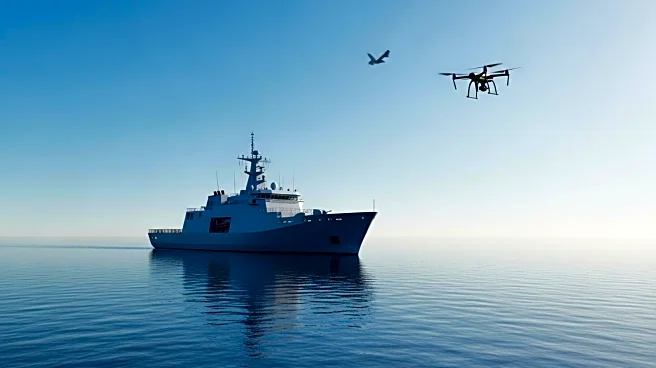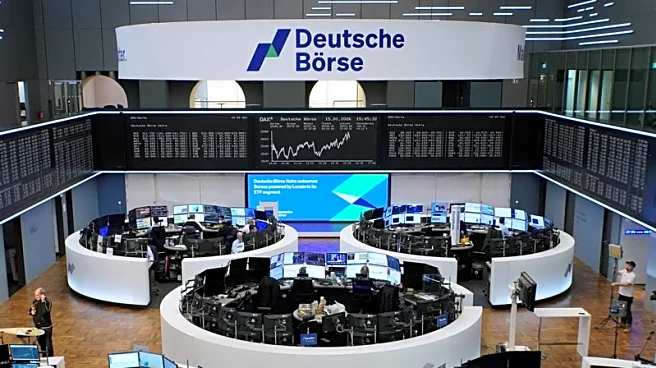What's Happening?
Italy has deployed a naval vessel to support an aid flotilla targeted by drones while attempting to deliver humanitarian supplies to Gaza. The flotilla, organized by the Global Sumud Flotilla, faced drone attacks that activists claim were orchestrated by Israel. The flotilla, consisting of multiple vessels carrying over 500 unarmed participants from various countries, was nearing Gaza when the attacks occurred. Italian Foreign Minister Antonio Tajani is mediating with the Israeli government to facilitate the entry of aid into Gaza. The Israeli foreign ministry has offered to transfer the aid through the Ashkelon port but accused the flotilla organizers of pursuing a violent course of action. Italy and Spain have both committed naval support to ensure the safety of the flotilla participants.
Why It's Important?
The deployment of Italian and Spanish naval vessels underscores the international concern over the safety of humanitarian missions in conflict zones. The incident highlights the ongoing tensions between Israel and humanitarian organizations attempting to deliver aid to Gaza. The flotilla's mission is critical in addressing the humanitarian needs in Gaza, which has been under blockade. The involvement of multiple nations in supporting the flotilla reflects the broader geopolitical implications and the need for coordinated international efforts to ensure safe passage for humanitarian aid. The situation also raises questions about the balance between security measures and humanitarian access in conflict areas.
What's Next?
Italian Prime Minister Giorgia Meloni has condemned the drone attacks and is conducting an investigation to identify those responsible. Italy has proposed transferring the aid to the Latin Patriarchate of Jerusalem for delivery to Gaza, urging flotilla participants to avoid entering the conflict zone. Spain is sending a ship to assist the flotilla, and Sweden is closely monitoring the situation, with Swedish nationals aboard the vessels. The Israeli foreign ministry maintains that the flotilla will not be allowed to reach Gaza directly but can unload aid at a nearby port for peaceful transfer. The international community may increase diplomatic pressure on Israel to allow humanitarian access to Gaza.
Beyond the Headlines
The incident raises ethical and legal questions about the use of force against humanitarian missions and the rights of nations to intervene in such situations. The attacks on the flotilla could lead to increased scrutiny of Israel's blockade policies and their impact on civilian populations. The involvement of multiple European nations in supporting the flotilla may influence future diplomatic relations and negotiations regarding humanitarian access in conflict zones. The situation also highlights the challenges faced by humanitarian organizations in navigating political and military obstacles to deliver aid.











